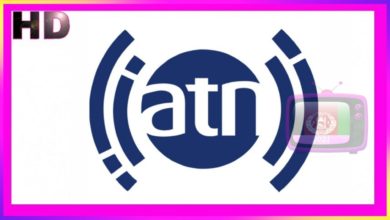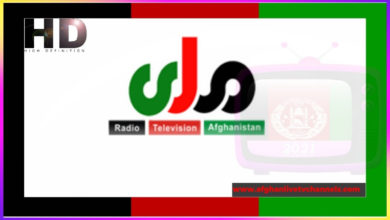
Tolo TV live (Persian: طلوع – “Sunrise”) is a commercial television station operating in Afghanistan. Launched in October 2004 by MOBY Group .
It became one of the first commercial stations in the country.
Tolo TV Live paved the way for an accessible media platform by providing a wide library of programmes. These are some of the programs (shabake khanda, Afghan Star), among others. It is currently Afghanistan’s most popular television channel.
Tolo TV began broadcasting in Kabul in November 2007 and now has free-to-air broadcasts in 14 towns across Afghanistan, as well as satellite transmissions throughout the region. Its sister channels are: TOLOnews and Lemar TV.
MOBY Group owns and operates TOLO TV , a commercial television station in Afghanistan. The first commercial stations, which launched in 2004 and laid the groundwork for an accessible media channel by delivering a large archive of programmes.
Tolo TV’s popularity has only grown over the years, and it is now Afghanistan’s most popular television channel. The station’s success is due in part to its commitment to producing high-quality content that resonates with Afghan audiences. In addition to its flagship channel, Tolo TV has also launched two sister channels: TOLOnews, which provides 24/7 news coverage, and Lemar TV, which offers entertainment programming in Pashto.
Tolo TV began broadcasting in Kabul in November 2007 and has since expanded its reach to 14 towns across Afghanistan through free-to-air broadcasts. Additionally, the station’s satellite transmissions have made it accessible to viewers throughout the region, including neighboring countries like Pakistan and Iran. This has allowed Tolo TV to become a major player in the media landscape of Central Asia and the Middle East.
Despite its popularity, Tolo TV has faced many challenges over the years. Afghanistan remains a volatile country, and the station has been the target of threats and attacks by militant groups that oppose its liberal and progressive programming. In 2016, a suicide bomber attacked a minibus carrying Tolo TV employees, killing seven people and injuring many others. The attack was widely condemned by the international community and highlighted the dangers faced by journalists and media workers in Afghanistan.
Despite these challenges, Tolo TV remains committed to providing a platform for diverse voices and perspectives in Afghanistan. The station has played a vital role in promoting free expression and democratic values in a country that has experienced decades of conflict and political instability. Tolo TV’s success has inspired many other media outlets to follow its lead, and the station has become a symbol of hope and resilience for many Afghans.
The Profound Influence of Tolo TV on Afghan Society: A Deeper Dive (2000 words)
Beyond the initial summary, Tolo TV’s influence on Afghan society delves deeper, shaping cultural trends, sparking social discourse, and offering a platform for critical voices. Here’s a closer look at its multifaceted impact:
Cultural Catalyst:
- Entertainment Landscape: Tolo TV introduced a new era of entertainment in Afghanistan, breaking away from traditional programming with engaging formats like music shows (Afghan Star), talent competitions, and drama serials. These shows provided a much-needed escape from the realities of conflict and offered a glimpse into a more modern way of life.
- Fashion and Beauty Trends: The station’s programming significantly influenced fashion trends, particularly among young Afghans. Popular actors and presenters became style icons, and their outfits sparked discussions and emulations across the country. This shift challenged traditional norms and introduced concepts of personal expression through clothing.
- Westernization and Globalization: Tolo TV, with its diverse content and international influences, exposed Afghan audiences to a wider world. This exposure, while sometimes controversial, broadened perspectives, challenged existing social norms, and fostered a sense of global citizenship among viewers.
Social Discourse and Change:
- Women’s Empowerment: The presence of strong female characters in dramas and the visibility of female presenters challenged traditional gender roles. While debates arose regarding the portrayal of women in certain shows, Tolo TV undeniably opened doors for female participation in the media industry, inspiring young Afghan women to pursue careers once deemed inaccessible.
- Social Issues and Taboos: Programs often tackled sensitive social issues like poverty, domestic violence, and drug abuse, sparking conversations and raising awareness. This willingness to address social realities, even when uncomfortable, played a crucial role in initiating change and challenging societal norms.
- Education and Awareness: Educational programs and documentaries broadened knowledge on various topics like health, hygiene, and environmental issues. These informative shows, often delivered in local languages, reached remote areas and contributed to public awareness campaigns, promoting positive social change.
Platform for Diverse Voices:
- Independent Journalism: TOLOnews, the station’s 24/7 news channel, emerged as a vital source of independent journalism in a country often plagued by media restrictions. Its critical reporting on government actions, social injustices, and human rights violations provided a platform for holding authorities accountable and advocating for change.
- Regional Representation: With broadcasts encompassing various regions and ethnicities, Tolo TV offered a platform for diverse voices and perspectives, fostering a sense of national unity and cultural exchange. This inclusivity helped bridge divides and promote understanding between different communities within Afghanistan.
- Voice for the Voiceless: The station provided a platform for marginalized groups, giving voice to the unheard and advocating for their rights. This included amplifying the voices of women, religious minorities, and those living in conflict-ridden areas.
Challenges and Controversies:
- Security Threats: Tolo TV’s progressive content and association with Western ideals made it a target for militant groups, leading to threats, attacks, and the tragic loss of journalists’ lives. This constant threat highlighted the dangers faced by those promoting free expression in a volatile environment.
- Cultural Clashes: The station’s portrayal of modern lifestyles and social issues sometimes clashed with traditional values, particularly in conservative regions. This led to debates and accusations of Westernization, forcing Tolo TV to navigate a delicate balance between promoting progress and respecting cultural sensitivities.
- Government Scrutiny: The Afghan government, at times, viewed Tolo TV’s critical reporting with suspicion, leading to censorship attempts and restrictions. This ongoing struggle for press freedom underscored the importance of independent media in holding power accountable.
Enduring Legacy and Symbol of Hope:
Despite the challenges, Tolo TV’s unwavering commitment to quality content, social progress, and free expression has left an indelible mark on Afghan society. It has:
- Empowered a Generation: The station empowered a generation of young Afghans, particularly women, to pursue careers in media, challenge societal norms, and advocate for change.
- Promoted National Dialogue: By providing a platform for diverse voices and critical discourse, Tolo TV fostered a national dialogue on crucial social issues, paving the way for positive social change.
- Offered a Beacon of Hope: In a country marred by conflict and instability, Tolo TV stands as a symbol of hope and resilience, demonstrating the power of media to promote progress and inspire a brighter future.
In conclusion, Tolo TV’s impact on Afghanistan extends far beyond entertainment. It has been a cultural catalyst, a platform for social discourse, and a champion of free expression, leaving a lasting legacy that continues to inspire and shape Afghan society. As the country navigates an uncertain future, Tolo TV’s commitment to providing a platform for diverse voices and promoting positive change remains crucial for building a more just and equitable Afghanistan.







